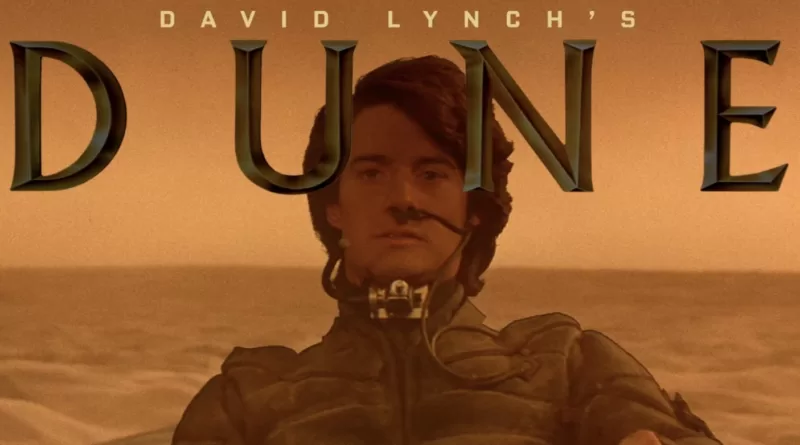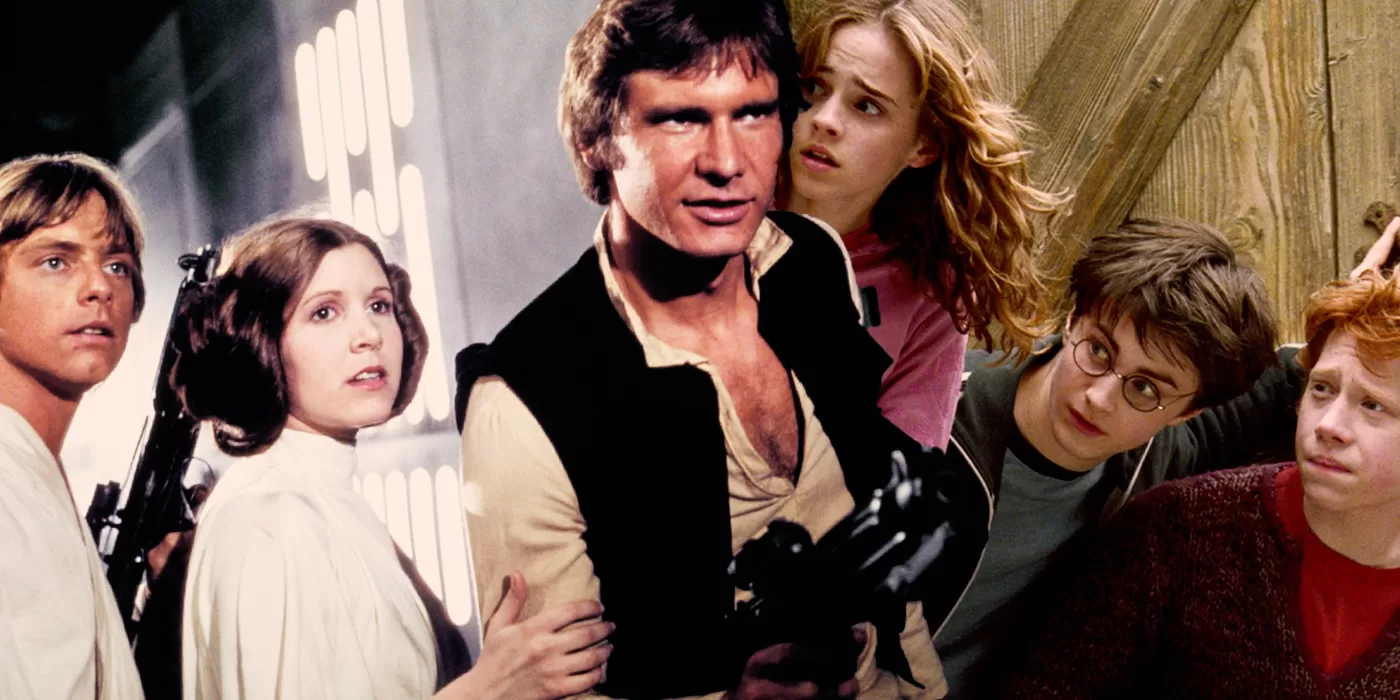Avant-garde and borderline macabre director David Lynch is known for several mind-bending films, but none more polarizing than 1984’s Dune. You may expect he would applaud Denis Villeneuve‘s Oscar-winning and awe-inspiring 2021 version of Frank Herbert’s universe of the enigmatic and Messianic desert planet.
Not so much.
You don’t understand? David Lynch adores the anomalous and esoteric. He is the creative force of nature behind Mulholland Drive, Eraserhead, Twin Peaks, and the acclaimed biopic The Elephant Man. So, when word began to spread like a rash in a frat house that he wanted to adapt Frank Herbert’s Dune for the big screen, nerd fanfare ensued.
And then the movie was released.
David Lynch had such overwhelming buyer’s remorse about his film, he eventually had his name removed from extended and TV versions. On some rare versions of the DVD or VHS, Lynch’s name is missing, and a pseudonym is in its place.
So, when he sat down with French entertainment outlet Cahiers du Cinéma (later recorded in Farout UK) and the topic of the latest version of Herbert’s evocative series came up in conversation, Lynch went full vitriol about his thoughts.
“I will never watch it, and I don’t even want you to tell me about it, ever.”
—David Lynch, in response to Dune
Butthurt much, Dave? Whatever the case, there are three words to summarize this eye-opening interview: It. Doesn’t. Matter.
Why David Lynch’s opinion about Dune is worthless
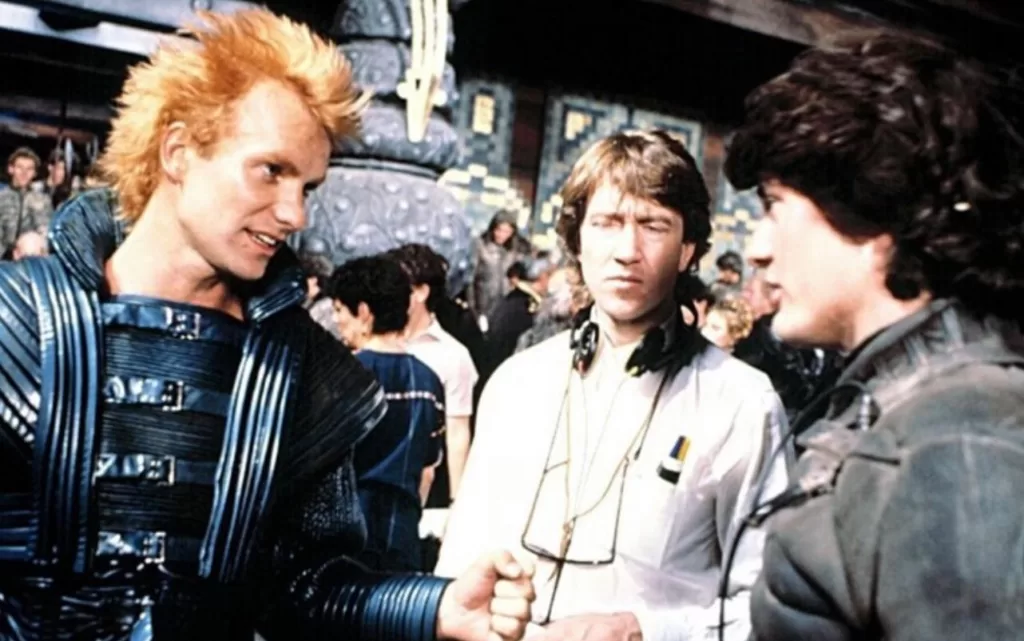
That revelation is not a subjective one. Take David Lynch’s opinion about his own version of Dune:
“I don’t even like talking about Dune really, but I’ve said before I knew when I was signing the contract that I was signing away final cut and from that moment I felt like, looking back, I started selling out.”
So, there’s that. He never read an entire book (at the time, there were five, but now there are 25). He doesn’t like his version (for good reason). He doesn’t care to see Villeneuve’s version (for obvious reasons). So, what’s his problem?
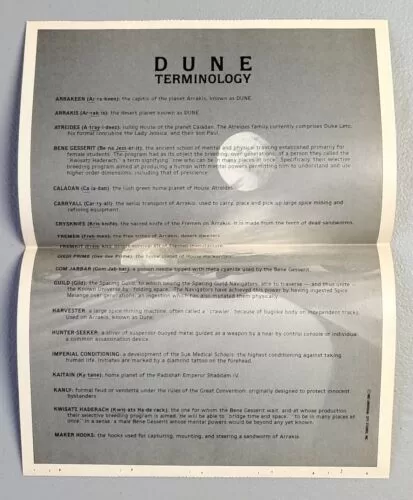
It was one year following The Return of the Jedi’s theatrical run in 1984. George Lucas’ trilogy about the Skywalker family changed the face of geekdom. Science-fiction films would never be the same.
And then, along comes this relatively unheard of film that was so complex and intricate, movie staff was required to pass out an actual glossary to ticket holders.
Imagine sitting there with your popcorn, having a Coke and a smile, and preparing for this dork pop quiz prior to the movie.
That’s pretty dang cool. And, if you didn’t know about the Dune book series, you could have loved the film. Unfortunately, David Lynch hated his movie so much, he’s still crippled with angst nearly 40 years later!
This adaptation has its voluminous foibles. If you know the book, the script is a heckler’s comedy of errors. It’s an editing hack fest like if Captain Hook was on a drunken deadline.
Nonetheless, that 1984 version is a true cult classic and beloved by millions of nerds globally (present company so included). Does that movie suck? Yeah, but in that lovable way like Flash Gordon or Batman and Robin. Does Lynch have a reason for his urine and vinegar attitude? Definitely. Should that stop anyone else from loving that film? Absolutely not!
What the Fremen is up with him anyway?!
David Lynch may be a cantankerous old fart who doesn’t mind poo-pooing his own film, but back then, and before easy access to Frank Herbert’s books, Dune was badass—despite its overwhelming suckage.
The concept was bewildering—the year AD 10191, three planets in the cosmos (two of them hate each other like the Hatfields and McCoys), and at the center of the conflict, this magic sand that can fuel time travel. Oh, and some dude with feathered hair who could be the Messiah.
What?!
It took Frank Herbert three books to get to that ascended theme. David Lynch had a little more than three years of work boiled down to 2.5 hours. He’s always claimed he didn’t “have creative control” or “the final cut” (yes, Warner Bros., we’re thinking of you). To this day, Dune “is a bit of a sadness” for him. And, if you sit through all that monotonous, over-whispering internal dialogue, it’s sad for fans too.
And if you think David Lynch is off his rocker not wanting to see a fantastic film, the feeling is mutual. Denis Villeneuve has no time for the 1984 version either, says the man in a 2017 interview with Yahoo! Movies.
“David Lynch did an adaptation in the ’80s that has some very strong qualities. I mean, David Lynch is one of the best filmmakers alive, I have massive respect for him.”
“But when I saw his adaptation, I was impressed, but it was not what I had dreamed of, so I’m trying to make the adaptation of my dreams. It will not have any link to the David Lynch movie. I’m going back to the book, and going to the images that came out when I read it.”
—Denis Villeneuve
Yeah, that was shade about going back to the book. For the bookworm, the 1984 edition had egregious problems and poor editorial license. There were countless adaptation issues, but for grins, here are some of the most obvious between the two versions and the book. In summary, although for blossoming nerds back then, it is a classic and glorious film—maybe David Lynch has a point.
Breaking down Dune 1984 vs. 2021
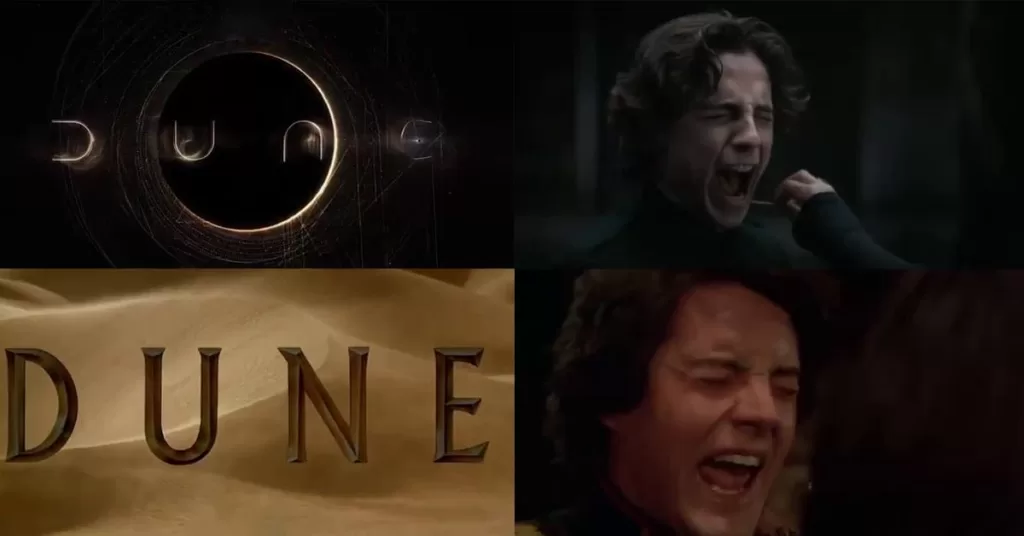
David Lynch thumbed through the Cliff’s Notes version of Dune (1965) and Dune: Messiah (1969), then made a dork casserole of all that content. Denis Villeneuve gave us one-half of the first book in three hours.
PROOF: The introduction by Virginia Madsen’s Princess Irulan in the 1984 version introduced us to her father’s planet, Kaitain. Only, in the first book, that planet never comes up in print.
Remember “The Weirding Way” in the movies? Frank Herbert wrote that as a form of Prada-Bindu martial art to be used during hand-to-hand combat. That’s why Paul’s mom (in both movies) whoops up on Stilgar and has him crying for his mama in seconds. Weirding is almost like telepathic bursts (think Nightcrawler from X-Men). The Voice is a part of this psychosomatic control, like the “Fear is the mind-killer” mantra. However, Lynch took it a step further with those audible modules making guttural sounds killing words.
PROOF: This decibel gun was 100% made up. Although to the untrained ear or eye of Frank Herbert’s books, this was considered vivid imagination. Well, David Lynch doesn’t lack that. Just sticking to the original content.
Herbert’s Paul Atreides is not only Duke Leto’s and Lady Jessica’s son, but he’s a teenager—a pock-faced, hormone-raging, sneaking-looks-at-dirty-pictures kid. Dune is a coming-of-age story. In 2021’s Dune, Timothée Chalamet acts like a kid. He idolizes Duncan, loves his Dad, struggles with his mom, is still getting his sea legs, and of course, fantasizes about girls. That’s how he was supposed to be.
PROOF: In David Lynch’s version, Paul is an advanced 20-something who falls fast into the role of Muad’Dib. His relationship with Duncan is one of mutual respect, Gurney is more a mentee, and Thufir Hawat is one of Padawan and Jedi.
P.S. You like those Roblox shields? Not the finest film technology.
Do you remember the Guild Navigator at the beginning of Dune 1984? That thing looks like an inbred ancestor of Squidward telling the Emperor what he wants and the universe needs—Paul dead. He talks through a translating device, swimming in his lake of sludge. Nice.
PROOF: Think less reject from The Little Mermaid and more Swamp Thing. The Guild Navigator in the book is gruesome but more human-like. Also, you never see or hear from a Navigator until Dune Messiah. So, Lynch seriously got ahead of himself there. Maybe he grabbed the wrong book in the bathroom?
This one is actually preferred by many because of the grandiose style seen in the 1984 Dune. Remember, Frank Herbert wrote his opus in 1965—an anti-establishmentarian way of living and thinking. Dune Messiah features a growing Paul Atreides taking his throne as leader of the Fremen and ruler of the universe—only, he ain’t God!
PROOF: Forget walking on water when you can just make it rain. Look at Paul. Playa playa! This doesn’t happen in either of the first two books. Too bad.
Perhaps we will do a comparison between the films? In fact, there are some things David Lynch actually did better (not many, but there are some). If you’re interested, holler back!
Stay tuned to the Agents of Fandom socials for the latest Dune news.





